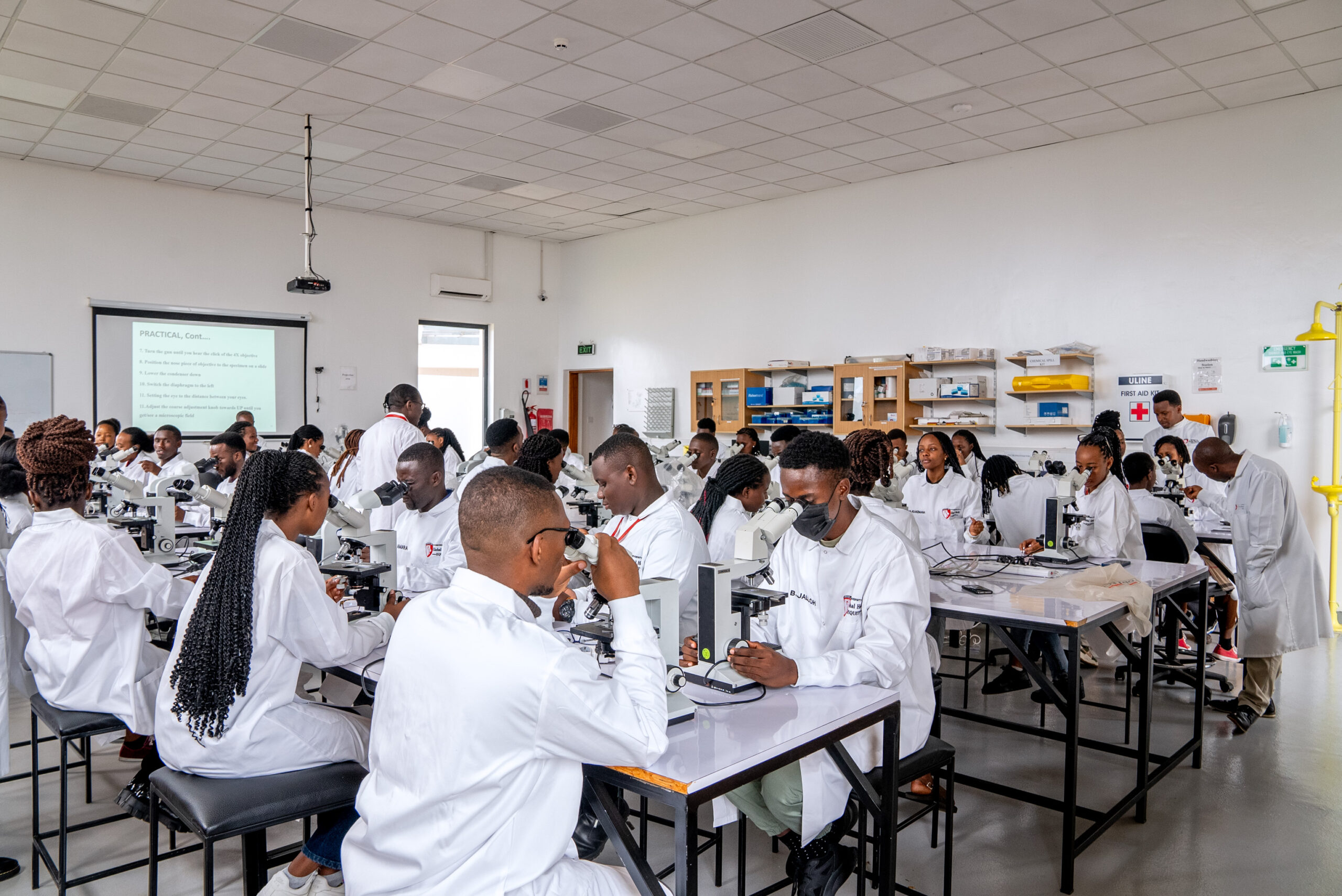Division of Basic Medical Sciences
November 16, 2024 2025-03-10 18:08Division of Basic Medical Sciences
Division of Basic Medical Sciences
The BMS division is an integral part of the School of Medicine that oversees training of students in foundational courses related to Microbiology, Biochemistry, Physiology, Anatomy, Pharmacology, and Pathology, during the first two years of medical training. The six disciplines are taught in an integrated manner avoiding redundancy of content while ensuring practical science laboratory and simulation sessions are incorporated in every module.
Department of Pathology
The Department of Pathology oversees the integrated teaching of all pathology related class and lab sessions in all basic medical science modules. This includes pathogenesis and pathophysiologic disease mechanisms, their gross and microscopic changes in tissues and organs, and related clinical presentation. The department has two pathologists who teach in collaboration with other faculty staff from external partners universities.

Department of Microbiology
The department of Microbiology leads all training in infectious diseases using cutting edge innovative approaches. The department is supported by multinational faculty and staff in imparting modern skills to the trainees.
In addition, the department relies on excellent partnership with Butaro Level two Teaching Hospital, the National Reference Laboratory, and several partners in infectious diseases research. The current research partnership focuses on Antimicrobial Resistance with additional work on sepsis in the oncology unit. Future interest will likely focus on the role of the microbiome in disease prevention. The department also works closely with other units including community health.
Department of Anatomy
Department of Biochemistry
The Department of Biochemistry plays a critical role in the education of medical students by focusing on the biochemical processes fundamental to human health and disease. The department offers in-depth instruction in key areas such as molecular biology, enzymology, and metabolic pathways, providing students with a comprehensive understanding of the biochemical mechanisms underlying physiological functions and clinical practices.
A notable feature of the program is its emphasis on practical experience. Students engage in laboratory sessions that include hands-on experiments using up-to-date biochemistry tools and techniques. These practical sessions are designed to enhance students' skills in analytical methods, data interpretation, and experimental design.
Additionally, the department is dedicated to advancing biochemistry research and integrating the latest scientific discoveries into its curriculum. Faculty members are actively involved in research projects that contribute to the field and support the broader goals of global health equity. The Department of Biochemistry’s commitment to both education and research ensures that students receive a robust and current education in medical biochemistry.


